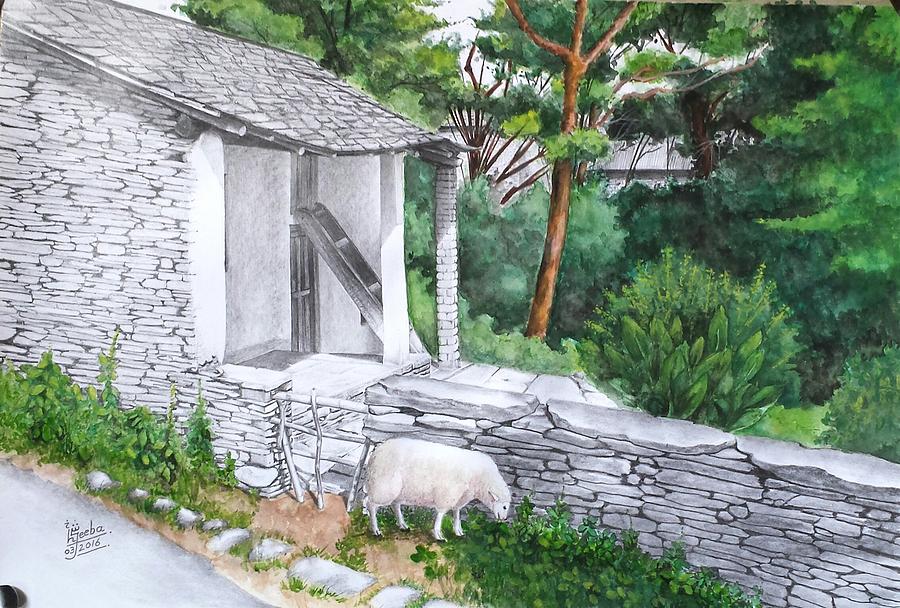Saturday Reading!Trade secret of village odd-job man.
Saturday Reading!Trade secret of village odd-job man
Around a century ago, there prevailed a custom among hill people in North India of giving away their daughters in matrimony to suitors who could shell out Rs 200 to Rs 500. Gold was sold at Rs 40 a tola then. A sum of Rs 200 would provide the ghanyara slate lean-to roof for the two-room living house of the parents of the bride — the mud house earlier having a leaky straw cover only.

Old Slate-Roof House, the ghanyara slate lean-to roof
Puniya kanyadaan (marital alliance sans payment) was generally abstained from due to the prevalent belief that the groom’s family cared better for the bride brought home on payment than through kanyadaan. Moneyless men would go so far as to entice and abduct marriageable girls.
In that epoch, a man named Loksewak, a non-practising Brahmin, landed in our village Mandali — a remote locale where cops seldom ventured — along with an upper-caste woman brought by him from the plains. He took little time in raising a two-room mud house facing the area’s motor road. Loksewak, a harfanmaula (jack of all trades), soon earned the epithet ‘Panditji’. If there was a sick child in the neighbourhood, he would ward off the evil spirit by stirring a peacock-feather mutha around the sick one’s head, while chanting some mantras known only to him.
If there was a community feast, Loksewak would be the leading chef. He smithed horseshoes and fixed mule-hooves. He tinned people’s brass utensils. And what not!
One
day, the clutch wire of my Royal Enfield slipped out. A spare one was
required to be procured from an auto agency 100 miles away — involving
two-day up-and-down hitch-hiking. I could ill-afford that. I approached
Panditji for a possible jugaad. While he busied himself with my clutch
wire, an elderly woman walked into his in-house smithy with a hurricane
lantern in her hand.
She complained that the wick-wheel of the lantern was not functioning. Panditji bid her to leave the lantern and come for it the next day.
The
departing woman had barely gone out of sight when Loksewak, putting
aside my half-done clutch wire, took the lantern. He opened its
wick-holder, scratched off the carbon layer atop it and the wick started
moving up and down like that of a brand-new product. As the harfanmaula
was about to give finishing touches to my clutch wire, I asked him why
had he asked the woman to come the next day when he knew that he could
fix the defect in her lantern in a jiffy.
‘It is a trade secret,’ he said, leaving me mystified.
 -
-
Comments
Post a Comment